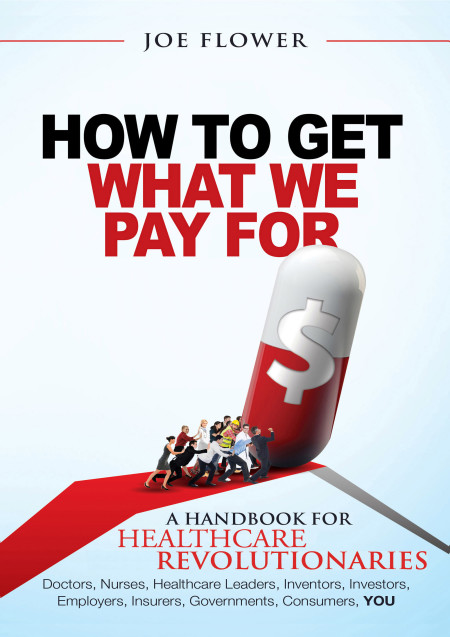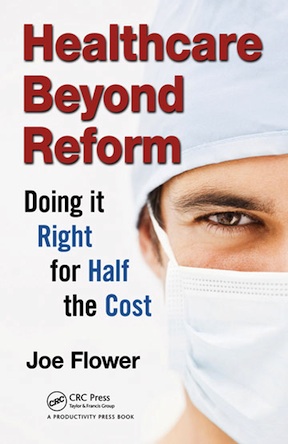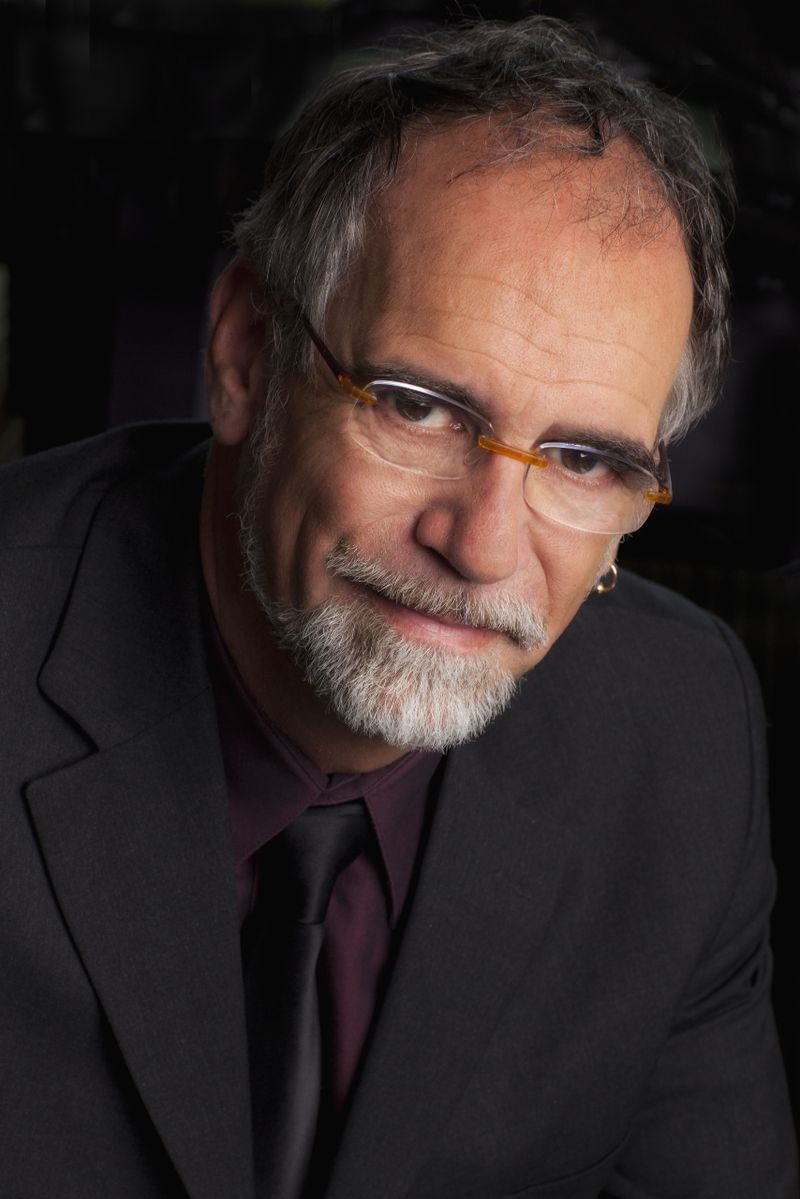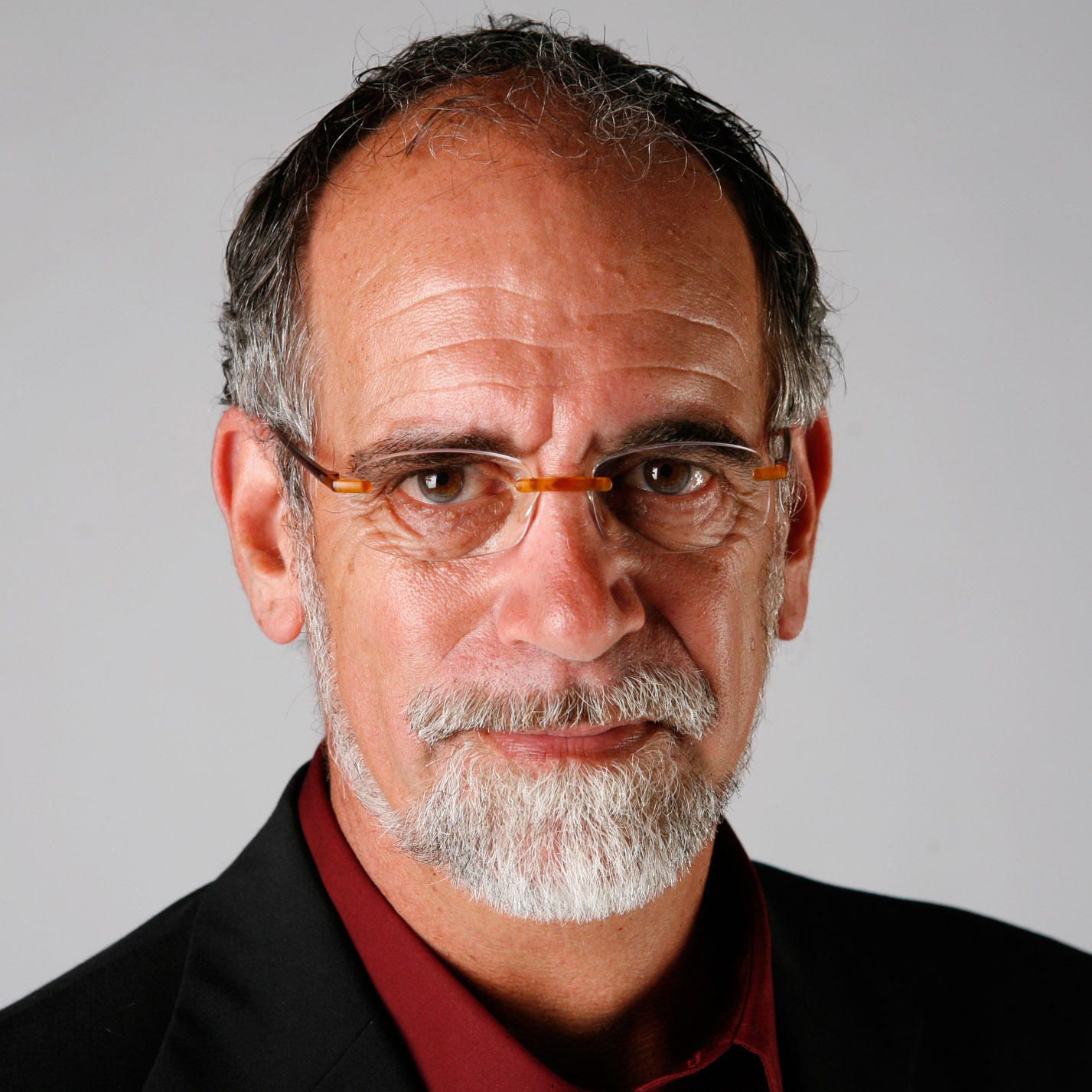Biography
With over 30 years’ experience, Joe Flower has emerged as a premier observer and thought leader on the deep forces changing healthcare in the United States and around the world. As a healthcare speaker, writer, and consultant, he has explored the future of healthcare with clients ranging from the World Health Organization, the Global Business Network, and the U.K. National Health Service, to the majority of state hospital associations in the U.S. , as well as many of the provincial associations and ministries in Canada, and an extraordinary variety of other players across healthcare – professional associations, pharmaceutical companies, device manufacturers, health plans, physician groups, and numerous hospitals. He has been a consultant on change and the future with the U.S. Department of Defense, Airbus and ArianeSpace, and a number of governments in China.
Flower is the author of hundreds of healthcare articles. For over 20 years he was a contributing editor and regular columnist at the Healthcare Forum Journal. When the Healthcare Forum became the Health Forum of the American Hospital Association, he went on to a regular column in the AHA’s Hospitals and Health Networks Daily. He is member of the AHA’s Health Forum’s speaking faculty, and serves on the board of the Center for Health Design.
Flower was a contributing writer for Wired Magazine in its explosive early years, and a columnist for the pioneering health websites DNA.com and HealthCentral.com.
After an MA from San Francisco State University and postgraduate work at UC Berkeley, his further deep research into the nature of change in organizations and people led to interviews with the top thinkers on organizational change, from Peter Drucker to Peter Senge and Ari de Geus. He went deeper, into the study of chaos theory, Eastern thought, and martial arts, eventually earning a black belt in Ueshiba Aikido.
Flower was a founding member of the International Health Futures Network and the principal author of the landmark healthcare forecast, “Technological Advances and the Next 50 Years of Cardiology,” Journal of the American College of Cardiology (vol. 35, no. 4, 2000).
His other writings include:
- China’s Futures, Global Business Network 2000 (co-author)
- The 21st Century Healthcare Leader, Jossey-Bass 1999 (co-author)
- Japan’s Futures, Global Business Network 1998 (Executive Editor)
- Leading Change: A Key Challenge for Board-Management Teams, The Governance Institute, 1998
- The Encyclopedia of the Future, MacMillan, 1996 (co-author)
- Best Practices in Collaboration to Improve Health: Creating Community Jazz, (principal co-author), The Healthcare Forum and the California Wellness Foundation, 1996
- Prince of the Magic Kingdom: Michael Eisner and the Re-Making of Disney, John Wiley 1991
- Age Wave, Random House 1989 (co-author)
Videos
Joe Flower, Healthcare Futurist in Dublin, April 2014 (interview)
Will You Survive the New Economics of Healthcare?
The End of Waste in Healthcare
Run Toward the Roar
New Business Models in Healthcare
Speech TopicsExpand each topic to learn more
Drawing from a Table of Elements in Healthcare
Something powerful is forming beyond the fog, haze, and chaos of 2018, an ecology of futures that grow from the interaction of new technologies, new pathways of care, and new economics. Flower calls these The Table of Elements of Healthcare. These deep disruptive trends will mix and re-combine to shape healthcare in ways that are more powerful and fundamental than today’s political shifts. Picture: Blockchain and artificial intelligence meet reference pricing,
personal medicine and population health. And there are others, some you may be innovating with, others you may not have considered: the platforming of the business model, new patient-centered tech, DIY healthcare and the quantified self, mobile tech linked up into 24/7 distributed care, medical automation and Big Data analytics, population health management, and seamless coordination, among others.
What will it look like when these disruptive elements – the new systems and new tech –recombine and actually work? What will the Next Healthcare look like, day to day, for clinicians, healthcare leaders, patients, parents, employers? In this talk, you’ll take the imaginative journey and learn a framework for choosing the elements that will get you where you want to go. Take a sneak peek with Joe Flower, hopeful and bracing; subtle and dazzling; and visionary, yet deeply
practical.
A Master Class in DIY Futurism
Flower is a futurist with a long past, gathering data, scanning for patterns, constructing testable scenarios, searching out dependencies and feedback loops for decades now. Would you like to follow along? Would you like to have more insight into your future and the future of your organization? How do you think about the future in an organized, useful way?
We’ll cover the basics in this talk, including:
• trendspotting and trend testing
• Constructing useful scenarios
• Spotting and challenging your own assumptions and beliefs
• Data gathering: Sifting the firehose
• What statistics do and do not tell you
• The peculiar ways of complex adaptive systems: Basics of analysis
Politics and Economics, Global and National, And How to Track the Important Variables
We’re back in the cage fight. We’ve been struggling with healthcare reform and payment reform for 8 years now — and now they’re going to rip it all up and replace it with … something. The process is likely to be a lot more protracted and chaotic than anyone hopes for. And we won’t know how it really works out until well after the law is in place. We’re talking years. In the meantime, what was built under the Affordable Care Act, the sources of big chunks of our healthcare income, may or may not survive the disruption. You must be asking:
• How do you and your organization economically and emotionally survive this period with a minimum of hair tearing and -pulling?
• What are the best ways to secure your survivability until it all shakes out?
• Which aspects of our current reality are likely to change the least?
Here’s the kicker: The expectation of constrained resources, the chaos and uncertainty of getting to them, and the increased unwillingness of private payers to be cost-shifted into the cash cow role, will lead to a paradoxical result: much more rapid innovation in both business models and the technology that supports them as the industry reshapes to meet a radically different future. Hold onto your hats, folks. In this talk, Joe Flower brings current events and trends to bear on your immediate situation, and offers a framework for navigating through it.
He combines the art of the long view with up-to-the-moment insights into the unfolding political realities and their second- and third-order consequences.
Facts and Fictions
If you are selling into healthcare internationally, or planning new initiatives in your country, you may be scratching your head. What’s the strategy now? How will the possibility of increasing protectionism and political shifts in major healthcare markets like the U.S. affect the international healthcare market? How will they affect your projects? No one can predict the specifics now, but there are rules of thumb, trends to watch, and sources to trust. Drawing on 35 years of experience in healthcare, and work with many national and local governments and vendors around the world, Joe Flower will work with your organization to devise a carefully customized talk integrating what he knows with what you know so that you’ll come away with new energy, a greater clarity, an actionable way forward.
One of My Most Popular Talks
It’s all happening so fast. Sometimes events move so quickly that a talk you commissioned months before is not as satisfying as this up-to-the-moment, spontaneous conversation. Drawing on a deep knowledge of history and 35-years of experience in healthcare, Joe Flower brings thought-provoking analysis and new perspectives to your unique situation, addressing your unique concerns. As Flower reframes issues and answers your questions, sharing the most recent information available, what you hear addresses what you most care about right now. This kind of talk has been among his most popular, partly because it’s always fresh, and allows him to delve deep where called for, and because it draws on the strengths of your group, engaging them at the live edge, where they are most curious and growing. Flower can do a short presentation or bring seed questions to get things started, based on your requests. You and he can request questions ahead of time or screen questions as you go. This is a highly customizable talk.
The two scenarios: old models + new tech v. new models + new tech. Let’s see where they each take us.
We hear it in blog after news article after press release: This changes everything! Introducing the new technology will make healthcare so much more efficient that healthcare will become cheaper, more available, and better. All by itself! Just as often, Joe Flower sees broad discussions of the future of healthcare that are all about the technology and ignore the economics of this vast system. Can the same old models be made to work by means of new, more efficient technology? In this talk Flower explores the two main scenarios, Fee-for-service + tech v. business model innovation + tech. Can one or both accomplish the same goals of reducing costs, improving care, and making care affordable and accessible for all? Let’s think this through and come out with a clear, waking strategy.
A Day in the Life
In 2015 we are re-defining what it means to be a clinician in ways that are both astonishingly futuristic and classical. How different will it be? How will you make a living? Will it ever get easier? What tech will do the job, what will be lost in the noise? What parts of the job will be turned over to robots, sensors, and algorithms? What will the new patient-centered tech, DIY healthcare and the quantified self, mobile tech linked up into 24/7 distributed care, medical automation and Big Data analytics, population health management, seamless coordination — what will they all look like in the day-to-day work with patients? Take a tour of the future in detail in the actual workflow of clinicians ten years or more in the future.
A Key to Driving Costs Down and Quality Up
If you are looking for savings, that’s one place you’ll find it. If you are looking for better, earlier, more effective healthcare, behavioral health has to form a big piece of any strategy for building better and cheaper healthcare — but most of us are doing it wrong. Here’s how to do it right.
Talks for Specific Industry Sectors
Flower regularly brings his analysis of the future to specific industry sectors and stakeholders, such as:
• Hospitals, health care systems, and hospital associations
• Clinics and clinic associations
• Physician groups and other professional associations
• Behavioral health
• Long-term care and hospice
• Pharmacies
• Pharmaceutical companies
• Health care financial managers
• Health plans and managed care
• Major vendors
• Employers
• Investors
Testimonials
Blog Posts

Confidence Without Vulnerability Creates Teams That Never Improve
Can ego and vulnerability coexist in teams that actually win? Most leaders think they have to choose. Either you build confident people who believe they're excellent, or you create humble people who accept feedback. Either...
Read More
Financial Planning in 2026 Requires a Clear Strategy
Have you noticed that the internet has never given more financial planning advice than it does right now? That's actually the problem. Your feed has become a 24/7 trading floor of hot takes. "Buy this."...
Read More
Crisis Leadership Lessons from September 11 Reveal Everyday Resilience
What if the most powerful crisis leadership lesson from September 11 isn't about the decisions made in underground bunkers, but about the farmers, truckers, teachers, and everyday workers who make heroic responses possible? After sharing...
Read More
Best Artificial Intelligence Speakers for Cybersecurity Conferences (2026 Guide)
Quick Links Artificial Intelligence Speakers Healthcare Keynote Speakers Top Technology Speakers Innovation Speakers Leadership Speakers Future of Work Speakers Get Proposal (availability & fees) If you’re searching for the Best Artificial Intelligence Speakers for Cybersecurity...
Read More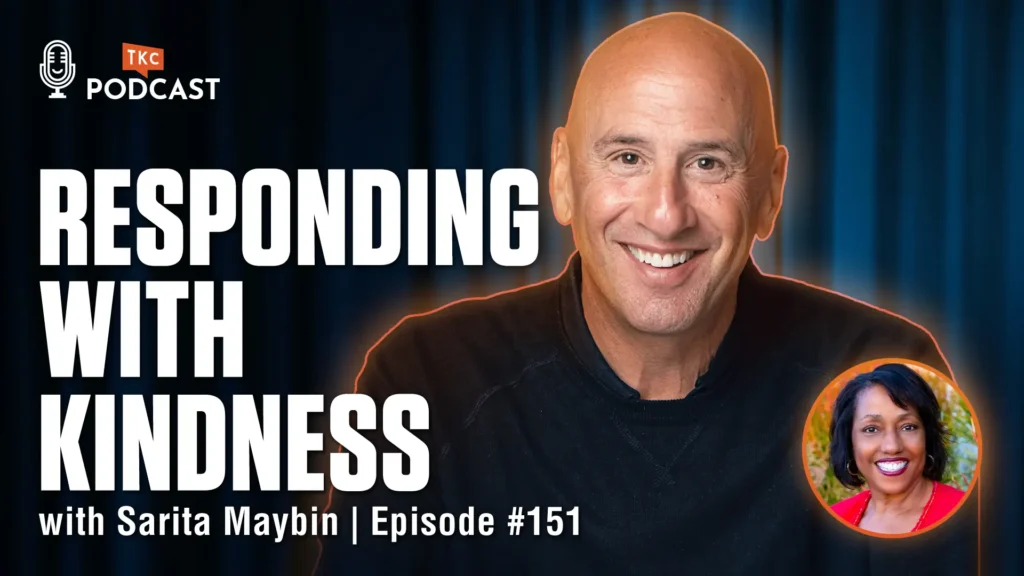
Communication Strategies from Sarita Maybin that Transform Workplace Conflict Into Collaboration
Why Your Team's Real Problem Isn't Strategy—It's Communication When was the last time a workplace conversation went sideways, not because of what was said, but how it was delivered? Most organizations pour resources into strategic...
Read More
The 2026 Keynote Speaker Lineup That Creates Real Momentum
If you're looking for a sign to power start your 2026, here it is: this is the year you stop negotiating with your potential. January arrives packed with goals, spreadsheets, and ambitious plans. However, goals...
Read MoreRelated Futurist Speakers
Get in TouchContact US
Fill out the form so we can best understand your needs.
A representative from The Keynote Curators will reach out to you.

